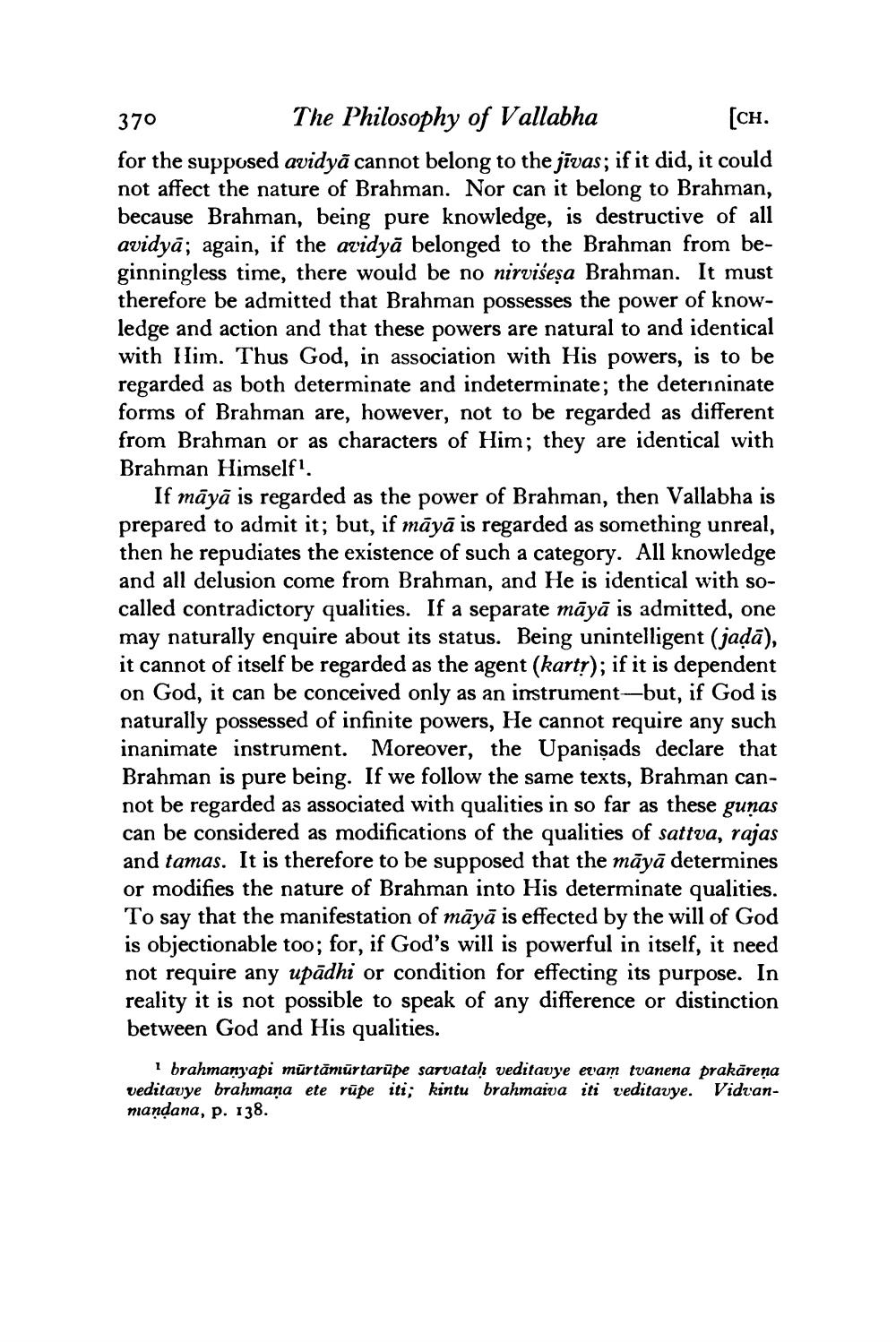________________
370 The Philosophy of Vallabha
[CH. for the supposed avidyā cannot belong to the jīvas; if it did, it could not affect the nature of Brahman. Nor can it belong to Brahman, because Brahman, being pure knowledge, is destructive of all avidyā; again, if the avidyā belonged to the Brahman from beginningless time, there would be no nirviseșa Brahman. It must therefore be admitted that Brahman possesses the power of knowledge and action and that these powers are natural to and identical with Him. Thus God, in association with His powers, is to be regarded as both determinate and indeterminate; the deterininate forms of Brahman are, however, not to be regarded as different from Brahman or as characters of Him; they are identical with Brahman Himself".
If māyā is regarded as the power of Brahman, then Vallabha is prepared to admit it; but, if māyā is regarded as something unreal, then he repudiates the existence of such a category. All knowledge and all delusion come from Brahman, and He is identical with socalled contradictory qualities. If a separate māyā is admitted, one may naturally enquire about its status. Being unintelligent (jadā), it cannot of itself be regarded as the agent (kartr); if it is dependent on God, it can be conceived only as an instrument—but, if God is naturally possessed of infinite powers, He cannot require any such inanimate instrument. Moreover, the Upanişads declare that Brahman is pure being. If we follow the same texts, Brahman cannot be regarded as associated with qualities in so far as these gunas can be considered as modifications of the qualities of sattva, rajas and tamas. It is therefore to be supposed that the māyā determines or modifies the nature of Brahman into His determinate qualities. To say that the manifestation of māyā is effected by the will of God is objectionable too; for, if God's will is powerful in itself, it need not require any upādhi or condition for effecting its purpose. In reality it is not possible to speak of any difference or distinction between God and His qualities.
Ibrahmanyapi mūrtānūrtarūpe sarvatah veditavye evam tvanena prakārena veditavye brahmana ete rūpe iti; kintu brahmaiva iti veditavye. Vidvanmandana, p. 138.




